Employment law in British Columbia encompasses a range of legal issues that govern the relationship between employers and employees, ensuring fair and safe workplaces that prioritize the rights and interests of all parties. This complex area of law spans numerous issues, such as employment contracts, termination and dismissal, workplace harassment and discrimination, and wage disputes. Both employees and employers must be informed of their rights, obligations, and legal protections to avoid potential disputes or complications that could arise in the workplace.
In this article, we will delve into employment law in British Columbia, discussing critical legal issues commonly faced within the workplace and how proper legal guidance can help navigate these complex matters. As we explore, we will illustrate the critical role that a knowledgeable employment lawyer, such as those at Pathfinder Law, can play in supporting both employees and employers in understanding their rights and resolving disputes professionally and efficiently.
Pathfinder Law is a reputable law firm serving clients throughout Abbotsford and British Columbia, offering a wide range of legal services, including employment law. Our experienced attorneys are skilled in providing sound advice and compassionate representation to both employees and employers, navigating the intricacies of employment law to achieve fair and equitable solutions.
Navigating Difficult Employment Law Matters in British Columbia
1. Employment Contracts: Understanding Your Rights and Obligations
Employment contracts play a crucial role in establishing the terms and conditions of the employment relationship, outlining the rights and obligations of both parties. A well-structured employment contract should address elements such as job duties, salary or wage information, benefits, hours of work, probationary periods, confidentiality, and termination provisions.
Understanding your employment contract is essential for both employees and employers to avoid potential disputes or misunderstandings that may arise during the course of employment.
2. Termination and Dismissal: Navigating the Legal Landscape
Termination and dismissal issues are often at the forefront of employment law disputes and can be a source of considerable stress for all parties involved. It is essential to understand the various legal grounds for termination, the difference between reasonable notice and termination pay, and the concept of wrongful dismissal.
In British Columbia, the Employment Standards Act governs minimum standards for termination notice and pay, while common law principles guide reasonable notice and severance obligations. Navigating these laws can be complex, making professional legal guidance invaluable in finding equitable solutions.
3. Addressing Workplace Harassment and Discrimination
Preventing and addressing workplace harassment and discrimination is essential in fostering a safe, inclusive work environment for all employees. In British Columbia, the Human Rights Code provides legal protections against discrimination and harassment based on protected grounds such as race, gender, sexual orientation, and disability.
Employees and employers are responsible for identifying, reporting, and addressing any instances of harassment or discrimination, ensuring compliance with applicable human rights laws and creating an equitable workplace for all.
4. Wage Disputes and Employment Standards Compliance
Wage disputes can arise from disagreements over matters such as unpaid wages, overtime pay, or vacation pay. In British Columbia, the Employment Standards Act governs minimum wage requirements, overtime rules, meal breaks, and statutory holiday pay, among other labour standards.
Both employees and employers must adhere to these standards to avoid wage disputes and maintain a fair and transparent employment relationship. Legal guidance can prove invaluable in resolving wage disputes and ensuring compliance with employment standards legislation.
Rely on Pathfinder Law for Expert Employment Law Guidance
1. Employment Contract Review and Drafting
The seasoned employment lawyers at Pathfinder Law can provide expert guidance on employment contracts for both employees and employers, reviewing existing contracts for compliance with legal requirements or drafting new contracts tailored to your specific needs.
2. Termination and Dismissal Matters
Our experienced attorneys can assist both employees and employers in navigating the intricacies of termination and dismissal law, providing sound advice, advocating for your rights, and striving for fair resolutions to any disputes that may arise.
3. Addressing Workplace Harassment and Discrimination
At Pathfinder Law, our compassionate team can help both employees and employers address workplace harassment and discrimination, ensuring compliance with human rights law, fostering a safe and inclusive work environment, and seeking justice for any violations that occur.
4. Resolving Wage Disputes and Ensuring Employment Standards Compliance
Our skilled employment lawyers can offer invaluable assistance in resolving wage disputes and ensuring compliance with the Employment Standards Act, providing peace of mind for employees and employers as they navigate the complex world of employment law.
Conclusion
Navigating the difficult terrain of employment law in British Columbia is crucial for both employees and employers, as understanding your rights and obligations can help avoid potential disputes or complications that may arise in the workplace. By enlisting the legal expertise and guidance of Pathfinder Law’s dedicated employment lawyers, you can successfully address complex employment matters with confidence and assurance, knowing that your rights are protected and your interests well-represented.
Trust our employment lawyer in Abbotsford to provide compassionate counsel and comprehensive legal support, empowering you to navigate the intricacies of employment law and achieve equitable solutions for all your employment law matters.










